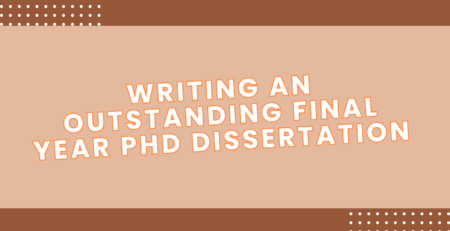How Long Should It Take to Pick a PhD Topic?
Kenfra Research - Shallo2025-04-14T15:21:00+05:30Choosing a PhD topic is one of the most important decisions in your academic journey. It’s a decision that shapes the direction of your research, influences your career path, and affects your overall experience during your doctoral studies. But how long should it take to Pick a PhD Topic? This blog dives deep into that question and provides practical advice, timelines, and tips to help PhD aspirants Pick a PhD Topic strategically and confidently.

Why Choosing a PhD Topic Takes Time
Before diving into timelines, it’s essential to understand why this process isn’t instantaneous. Unlike undergraduate or even master’s research topics, a PhD topic must meet several criteria:
- It should be original: A PhD contributes new knowledge to your field.
- It must be feasible: The topic should be doable within the time and resources you have.
- It needs to be relevant: It should address a gap or problem in the academic or practical field.
- You need to be passionate about it: You’ll be working on this topic for years.
Because of these requirements, rushing to pick a topic often leads to issues later—loss of motivation, lack of direction, or worse, having to change topics mid-way.
Ideal Timeline: How Long Should It Take?
There is no one-size-fits-all answer, but generally:
1 to 6 Months is Reasonable
Most PhD candidates take between 1 to 6 months to finalize their research topic. Here’s a breakdown:
- Month 1-2: Broad exploration, literature review, and discussing ideas with mentors or supervisors.
- Month 3-4: Narrowing down options, assessing feasibility, checking novelty.
- Month 5-6: Finalizing the topic, drafting a proposal, and getting approval.
Less than a Month? Too Risky
Picking a topic too quickly may mean you haven’t done enough groundwork. This can lead to issues like overlapping research, unfeasible scopes, or lack of relevant sources.
More than 6 Months? Possible Red Flag
While it’s okay to take your time, taking longer than 6 months might indicate indecision, lack of guidance, or over-analysis. In such cases, seeking support from your supervisor or academic advisors is crucial.
Step-by-Step Guide to Picking Your PhD Topic
- Understand Your Interests
Start with a list of broad areas you find intellectually exciting. Passion drives persistence. Think about:
- Past coursework you enjoyed
- Projects that sparked your curiosity
- Societal problems you want to solve
- Conduct Preliminary Research
Explore existing research in those areas:
- Use platforms like Google Scholar, Scopus, JSTOR, and Web of Science.
- Read recent journal articles and identify gaps or debates.
- Check if the area is trending or stagnant.
- Assess Feasibility
Ask yourself:
- Do I have access to necessary data or tools?
- Can this be done within 3–5 years?
- Are there enough resources and literature available?
- Consult with Supervisors and Peers
Feedback is crucial. Discuss your ideas with:
- Faculty members
- Potential supervisors
- Fellow PhD candidates They can help you refine your topic or redirect your focus.
- Narrow it Down
Move from a general idea to a specific, researchable question. Example:
- Broad Idea: Climate change
- Narrowed Topic: “Impact of Urban Heat Islands on Public Health in Southeast Asia”
- Check for Originality
Ensure your topic hasn’t already been done.
- Do a thorough literature review.
- Use databases like ProQuest and institutional repositories.
- You can also use plagiarism tools to ensure uniqueness in framing your title and proposal.
- Draft Your Research Proposal
Once you have a solid topic, prepare a proposal. Include:
- Background
- Research problem
- Objectives
- Methodology
- Expected outcomes This helps in gaining clarity and getting supervisor approval
Mistakes to Avoid When Choosing a PhD Topic
- Following Trends Blindly Not every trending topic suits your strengths or interests. Don’t choose crypto/blockchain/AI just because it’s “hot” if you’re not genuinely into it.
- Being Too Vague or Broad “Social Media and Mental Health” is too general. Narrow it to something like “The Impact of Instagram Use on Anxiety Levels Among Female Teenagers in Urban India.”
- Choosing What Your Supervisor Likes (Only) Yes, supervisor support matters, but you must be personally invested in the topic too.
- Ignoring Practical Constraints Do you have the software, datasets, or tools required? Can you access the communities or labs you need for fieldwork?
- Skipping the Literature Review Your idea might already exist. A thorough literature review helps prevent duplication.
Final Thoughts: Trust the Process
The time it takes to Pick a PhD Topic varies, but the key is intentionality over speed. Taking 3–6 months to Pick a PhD Topic wisely is a smart investment compared to rushing and regretting later.
Kenfra Research understands the challenges faced by PhD scholars and offers tailored solutions to support your academic goals. From topic selection to advanced plagiarism checking.






Leave a Reply